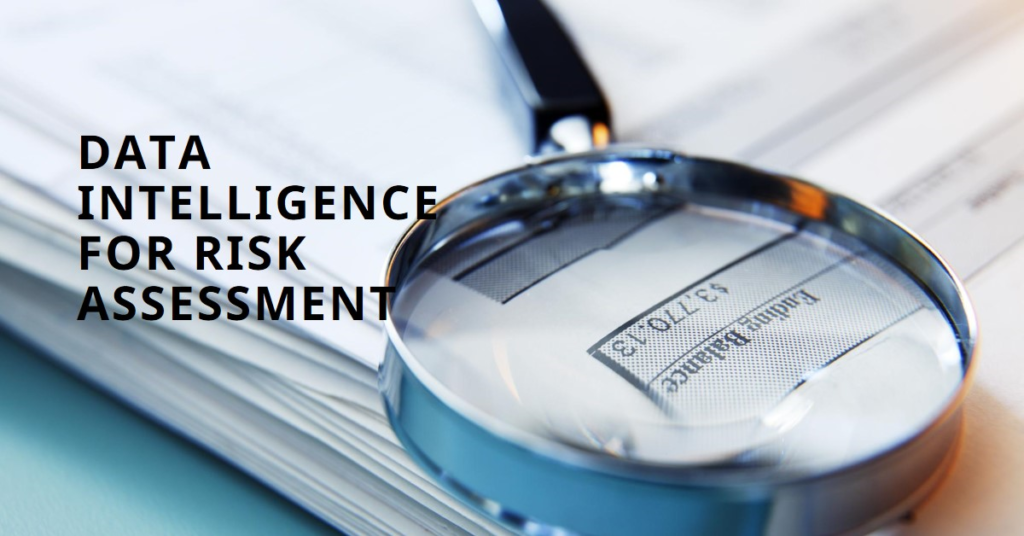In an era dominated by digital transactions and evolving financial landscapes, banks and insurance companies face increasingly sophisticated challenges when it comes to risk assessment and fraud detection. The traditional methods of manual checks and generalized rules are no longer sufficient in detecting the intricate patterns of fraudulent activities or assessing risks accurately. This is where data intelligence steps in as a game-changer for the industry.
The Power of Data Intelligence
Data intelligence refers to the process of gathering, analyzing, and leveraging data to make informed decisions and predictions. For banks and insurance companies, harnessing the power of data intelligence can significantly enhance their capabilities in risk management and fraud detection. By utilizing advanced analytics, machine learning algorithms, and predictive modeling, these institutions can sift through vast amounts of data to uncover hidden patterns and anomalies that indicate potential risks or fraudulent behavior.
Statistics and Trends
- According to a report by McKinsey, financial institutions that effectively leverage data analytics for risk management can reduce credit losses by up to 10%.
- A survey by PwC found that 56% of financial institutions have increased their spending on data analytics and artificial intelligence for fraud detection and cybersecurity.
Applications in Risk Assessment
For banks, data intelligence plays a crucial role in assessing credit risks, determining loan eligibility, and optimizing capital allocation. By analyzing customer data, transaction histories, credit scores, and market trends in real-time, banks can make more accurate assessments of a borrower’s creditworthiness. This proactive approach not only reduces the risk of default but also enhances customer satisfaction by offering personalized financial products tailored to individual needs.
Insurance companies, on the other hand, can use data intelligence to assess risks associated with policyholders more effectively. By analyzing claims data, demographic information, and external factors such as weather patterns or economic indicators, insurers can adjust premiums dynamically and mitigate risks proactively. This not only improves underwriting accuracy but also reduces fraudulent claims, thereby protecting the financial health of the company.
Fraud Detection and Prevention
Fraud remains a significant concern for both banks and insurance companies. With the rise of digital transactions and interconnected systems, fraudsters have become more sophisticated in their methods. Data intelligence provides a formidable defense by enabling continuous monitoring of transactions and activities across multiple channels. By analyzing behavioral patterns and conducting anomaly detection in real-time, suspicious activities can be flagged promptly for further investigation.
Case Study Example:
In 2023, a leading global bank implemented advanced machine learning algorithms to analyze transactional data in real-time. This proactive approach enabled the bank to reduce fraudulent transactions by 30% within the first six months of deployment.
How P99Soft Can Help
[P99Soft], a pioneer in data intelligence services, offers tailored solutions designed to empower banks and insurance companies in their risk assessment and fraud detection efforts. By leveraging cutting-edge technologies such as AI-driven analytics and predictive modeling, P99Soft enables these institutions to extract actionable insights from their data swiftly and effectively.
FAQs:
- How does data intelligence improve accuracy in risk assessment?
- Data intelligence utilizes advanced analytics to analyze historical data and real-time information, providing a more nuanced understanding of risks compared to traditional methods.
- What role does machine learning play in fraud detection?
- Machine learning algorithms can detect patterns of fraudulent behavior by analyzing large datasets and identifying anomalies that may indicate potential fraud.
- Is data intelligence scalable for both large and small financial institutions?
- Yes, data intelligence solutions can be scaled to meet the needs of both large banks with extensive datasets and smaller financial institutions seeking cost-effective solutions.
- How can data intelligence enhance customer experience in banking and insurance?
- By personalizing services based on customer behavior and preferences, data intelligence helps improve customer satisfaction and loyalty.
- What are the regulatory considerations when implementing data intelligence in finance?
- Financial institutions must adhere to strict data protection regulations such as GDPR or CCPA to ensure the security and privacy of customer information.
Conclusion
In conclusion, the integration of data intelligence is not just a technological upgrade but a strategic imperative for banks and insurance companies aiming to stay ahead in an increasingly complex landscape. By harnessing the power of data to enhance risk assessment and fraud detection systems, these institutions can improve operational efficiency, reduce costs, and build stronger relationships with customers. As we look ahead, the question remains: How will your organization leverage data intelligence to navigate the future of financial risk management and fraud prevention?
As the industry continues to evolve, embracing data intelligence is not merely an option but a necessity for those striving to thrive in a digital-first economy. With the right tools and strategies in place, banks and insurance companies can unlock new opportunities and mitigate risks effectively, safeguarding their assets and reputation in the process.
Also know Challenges in CRM Integration for Media & Entertainment.
